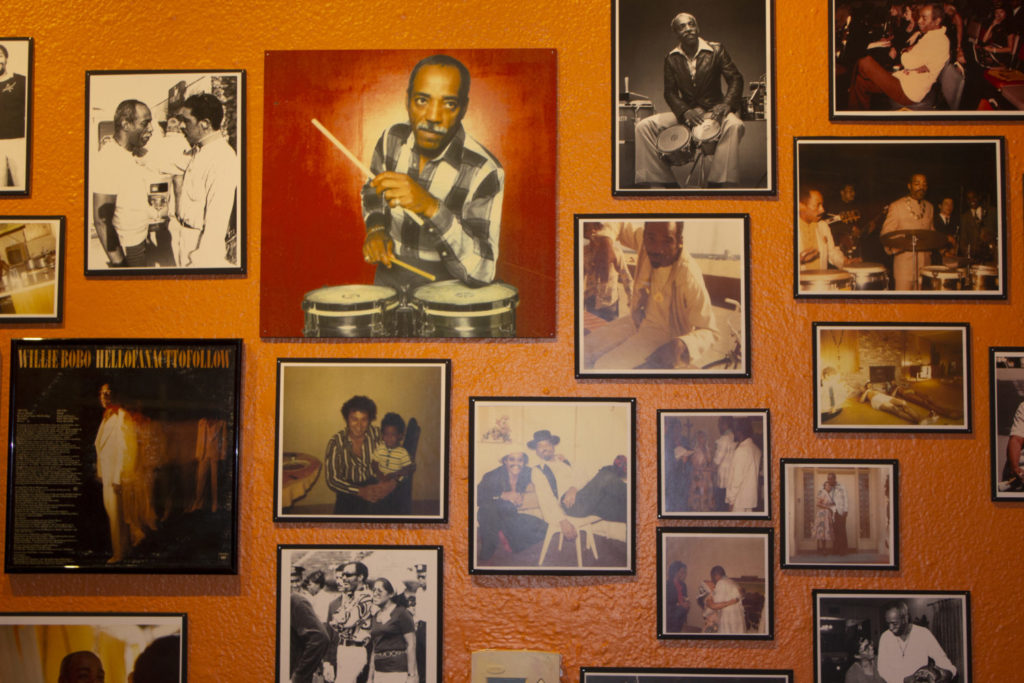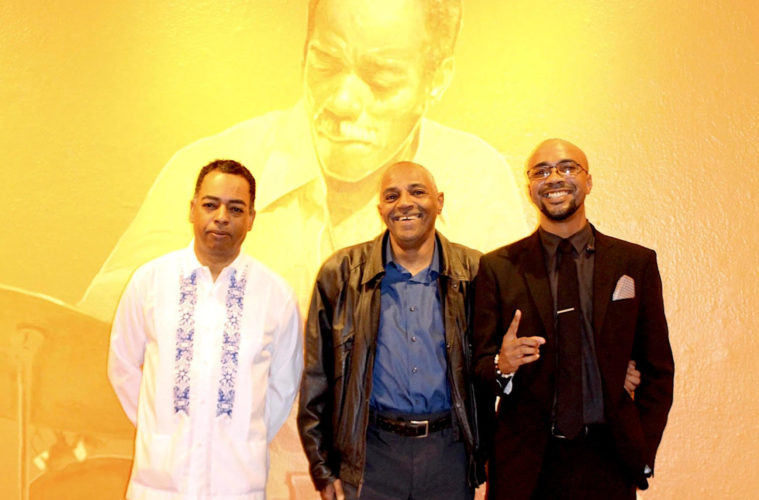Though younger music fans may not have heard of the Puerto Rican percussionist Willie Bobo, those of us old enough to have seen him in a live performance or owned his records know he was a legend. So it was with much anticipation in March, that I attended opening night of “Spanish Grease: The Life and Sounds of Willie Bobo,” a tribute exhibit at the William Grant Still Arts Center in West LA. The latest in the center’s African American Composers Series, the exhibit has been closed due to coronavirus restrictions, which were implemented just after it opened, but this Sunday the center will offer a virtual walk through hosted by his sons. In light of recent events, the online event offers a timely moment to celebrate Bobo’s contributions to music.
As Bobo himself explained in one of his best known LP’s of the same name, “Spanish Grease” means “Spanish soul.” That album as much as any of the many he recorded, represents the blending of Jazz and Latin Rhythms that he became famous for. Growing up in the Harlem section of New York, Willie “Bobo” Correa (Bobo was a nickname given to him by a fellow musician), began his career at a very young age playing percussion with Tito Puente and other famous musicians like Herbie Mann, Miles Davis, and Dizzy Gillespie, to name a few. Some time later, he came to the West Coast where he joined Cal Tjader, and eventually formed his own band.
The exhibit features an impressive collection of photos, posters, and album covers spanning his life, from his early years in New York to his later years on the West Coast. I personally felt a sense of nostalgia while looking at the photos of his performances in California, as I am sure I was in the audience in some of them.

Spanish Grease (Andrea Richards)
At the opening event, a Latin Jazz ensemble played some of Bobo’s most famous songs, and after it finished, there was a percussion session that featured his son Eric “Bobo,” who showed everyone that rhythm runs in the family. Watching it, I remembered the many times I saw Willie perform, beginning with the first time, more than fifty years ago at the famous Lighthouse in Hermosa Beach. As a young 20 year old just starting to enjoy Jazz, and specifically Latin, I was so impressed that soon after I bought myself a set of timbales and have been a part time percussionist ever since.
When you saw Willie perform you were entertained not only by his music, but also by the funny comments and antics he became known for. Often, when a set was over, he would look at the audience and say, “We are taking a small break. So we will be “white black.”
Once after a break, I saw him walk to the stage and as he was waiting for the rest of the band, he took the microphone, stood there for a few minutes, and suddenly screamed at the top of his lungs “Band- where the hell are you?!” scaring the crap out of everyone in the audience. I recall another time, he was performing at a club in East L.A. called the Pasta House. A fight suddenly broke out on the dance floor and it happened to be a drum solo on the timbales. Willie was looking at the fight while playing and I noticed that he was making the beats on the drums match the blows and tempo of the fight. He did not end the solo until the fight was over.

Bobo’s charm was always part of the experience of seeing him. I remember another show I attended when he played a song with a good dancing beat and for whatever reason, no one got up to dance. Before he started the next song he told the audience the name of it, and then in a loud voice added, “And this time… Don’t dance!” Of course, everyone got up and danced.
The thing that made Willie Bobo’s music special was its range- he made hard driving songs with a lot of percussion, but also slow romantic songs on which he sang in a soft mellow voice that was extremely appealing. Songs like “To Be With You”, “The Look of Love,” and the classic “Dindi” come to mind. By the time he died in 1983, he had established himself as a pioneer in the fusion of Jazz, Latin Rock, R&B, and the rhythms that eventually became known as Salsa. But it was his friendly attitude and his sense of humor, along with his talent, that made him unforgettable.
“Spanish Grease: The life and Sounds of Willie Bobo,” has been extended through mid November but the art space is currently closed due to pandemic (classes, workshops and other programs have all been live-streamed) and a virtual walk through of the exhibit with Eric Bobo takes place this Sun., June 7, 6 p.m. PST. More info wgsac.wordpress.com.
Advertising disclosure: We may receive compensation for some of the links in our stories. Thank you for supporting LA Weekly and our advertisers.

